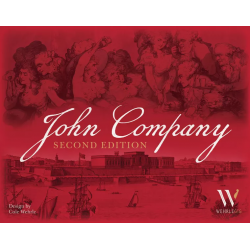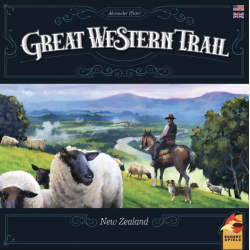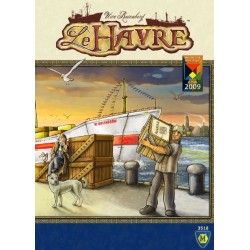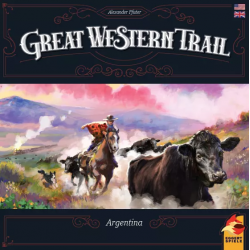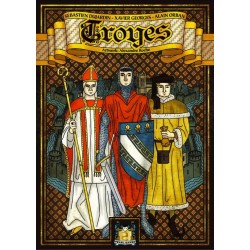No products in the cart.
Crossing Oceans
Towards the end of the 19th Century, ever larger and faster ocean liners revolutionized the growing maritime traffic. Daring shipping companies opened steamship lines to the most important ports worldwide. Modern steel juggernauts replaced traditional sailing ships and competed intensely for dominance on the major shipping routes.
John Company: Second Edition
In John Company, players assume the roles of ambitious families attempting to use the British East India Company for personal gain. The game begins in the early eighteenth-century, when the Company has a weak foothold on the subcontinent. Over the course of the game, the Company might grow into the most powerful and insidious corporation in the world or collapse under the weight of its own ambition.
Imperial
Each player represents an international investor. The players attempt to increase their capital and gaining influence in the most powerful European nations.
Great Western Trail: New Zealand
In Great Western Trail: New Zealand, you are a runholder — that is, the owner of a sheep station — on the South Island of New Zealand at the end of the 19th century. Recent years have seen your family farm prosper by diversifying your breeds of sheep and by increasing the value of your wool.
With the dawn of the new century, new challenges have arisen. You must acquire new and improved breeds of sheep to ensure the prosperity of your family business and the laborers who work for you.
Le Havre
Manage a shipping company in the port of Le Havre in this weighty economic strategy game! Balance investments in goods and ships while taking care to feed your workers.
Great Western Trail: Argentina
In Great Western Trail: Argentina, you own a vast estancia in Argentina at the end of the 19th century, and you will need to travel the plains of the Pampas with your cattle to deliver them to the main train station in Buenos Aires.
Troyes
In Troyes (pronounced "twah"), players recreate four centuries of history of this famous city of the Champagne region of France. Each player manages their segment of the population (represented by a horde of dice) and their hand of cards, which represent the three primary domains of the city: religious, military, and civil. Players can also offer cash to their opponents\' populace in order to get a little moonlighting out of them — anything for more fame!


